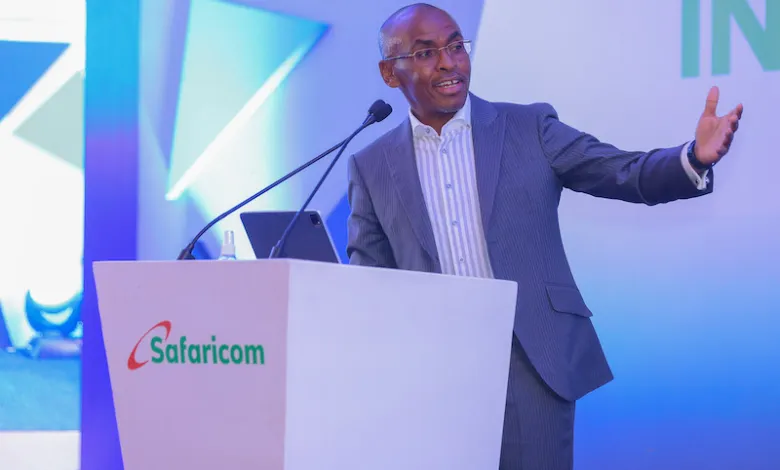Kenya’s leading telco Safaricom, and its partner banks announced cuts on daily charges for loans below Sh1000 ($8.29) from Fuliza, a short-term digital loan product on Wednesday. The move, widely seen as political, comes ahead of a planned presidential review of Kenya’s credit scoring system.
Introduced in 2019, Fuliza is an overdraft mobile money overdraft product jointly operated by Safaricom and two of Kenya’s largest banks, NCBA and Kenya Commercial Bank Limited (KCB). It is embedded within MPESA with an opt-in, with limits determined by a credit score. It also has a near-perfect repayment rate because funds are automatically deducted once the customer receives money via MPESA.
The recently announced tariff discount, which takes effect from the 1st of October, means Fuliza customers who borrow between Sh500 and Sh1000 ($4 to $8) will pay a daily interest charge of Sh6 (5 cents) down from Sh10. Fuliza users who borrow between more up to a cap of Sh70,000 ($580) will get up to 16.7% off.
“This establishes Fuliza as the most accessible and affordable credit facility at only 1% of the value, especially when customers pay within a relatively short period of time,” said Peter Ndegwa, Safaricom CEO at a press conference held to announce the tariff cuts.
The new rates only apply to Fuliza users who are not currently indebted. All customers who already hold a Fuliza loan by the start of the new charges will continue paying their loan using the old tariffs.
Per a report published by Kenyan Wall Street, a local business publication, Kenyans borrowed an average of Sh1.6 billion ($13.2 million) daily from Fuliza, in the first six months of 2022. In the first six months of 2021 alone, Safaricom earned Sh2.8 billion ($23 million) in revenue from Fuliza borrowings. Fuliza loans now make up 85.54% of digital loans given out by NCBA, Kenya’s third-biggest bank by assets.
According to a report published by Kenya’s central bank in collaboration with Kenya National Bureau of Statistics (KNBS) and Financial Sector Deepening Trust (FSD) Kenya, more than 18% of Kenyans use Fuliza. A cost of living crisis and changes made to M-Shwari, another short-term loan product jointly operated by Safaricom and NCBA forced more people onto the platform as the use of alternative digital loan apps declined. Safaricom and NCBA had barred customers from taking loans of less than Sh 2,000 on M-Shwari while increasing Fuliza loan limits. In October 2021, Safaricom announced new Fuliza Terms and Conditions that would see Fuliza defaulters blocked from accessing M-Shwari and KCB M-Pesa loan services, helping to consolidate Fuliza’s position as a leading credit facility for Kenyans.
By slashing Fuliza charges—and their revenue—Kenya’s banking stakeholders seem to be preempting a harsh review of Kenya’s credit scoring methods promised by president Ruto. The review reportedly begins next week.
“The Central Bank of Kenya welcomes the restructuring of the product including the pricing changes announced today. In our view, this is but a first step in ensuring that cost is affordable and draws more Kenyans into the financial services net,” Patrick Njoroge, Governor of Kenya’s Central Bank told the audience at the same press conference where the three CEOs announced the new tariffs. The Central Bank recently approved only 10 out of 288 applications to offer digital credit licenses, in a move the governor said is meant to curb bad digital lending practices.
The price slashes come as newly elected president Ruto has vowed to review Kenya’s Credit Reference Bureau (CRB) framework that has blacklisted thousands of borrowers for defaulting on loans. At his swearing-in ceremony, Ruto declared the current way CRBs assess credit applications “arbitrary” and “punitive” saying, “Our starting point is to shift the CRB framework from its current practice of arbitrary, punitive, all or nothing blacklisting of borrowers that denies borrowers credit.” He repeated the sentiment at the Safaricom, KCB, and NCBA presser. Ruto emphasized that his goal was to replace the current credit access system with a graduated scoring system that did not leave out the poor from accessing cheap credit facilities.
“The people who cannot make it to your offices, have sent me to you,” Ruto told the audience while confessing that the three companies’ decision had preempted his attempts to discuss the issue. “We are happy that you are already walking on the right trajectory. I am very confident that by walking in the direction you have started, we will get to the right destination. You are aware that Fuliza was a very popular word in the campaign and I am happy that you are listening.”
“We are not only going live with the new structure and setup of Fuliza, but we will fast track it using technology to deliver,” said Paul Russo, KCB Group CEO.
“We’ve listened and action is on the way,” said CBK governor, Njoroge. “…we have an ecosystem that we have to preserve. We have an ecosystem that we need to grow. We have an ecosystem of products, pricing etcetera that really has to transform the lives of Kenyans. And this is really what we have listened to,” Njoroge added in what seemed like an appeal for patience from Kenya’s executive and political class.
President Ruto, who is only two weeks into his 5-year tenure, is keen to score quick wins. Access to cheaper credit was a key part of his message during the political campaigns. At the presser, the president said his government is willing to underwrite—with public funds—the establishment of single-digit interest and collateral-free loans, promising that 5 million Kenyans will be removed from the CRB blacklist by the beginning of November.
The president also said that he wanted Kenya’s leading financial institutions, both traditional and fintech, to work with his administration to roll out Hustlers Fund, a collateral-free SME financing product that, like Fuliza, was a central part of his campaign. But companies like Safaricom already plan to roll out Fuliza-type financing for SMEs. The planned Fuliza for Business is expected to reach over 400,000 merchants who are using Lipa na Later M-Pesa allowing them to access overdraft facilities. Local media reports indicate that while it is still unofficial, Safaricom has applied for a license to roll out the product. Will it still go ahead?
In addition to this, Kenya’s public debt has already swelled past its debt ceiling of 55% reaching 64.2% of GDP. The government is struggling to meet debt and subsidy obligations and half of the country’s domestic revenues now go to service its interest obligations leaving one to wonder if new public spending will be a priority.
President Ruto may mean well, but it is still not clear how rushing to score early political wins with his Hustler fund program directly answers the main economic challenges facing the new administration.





















